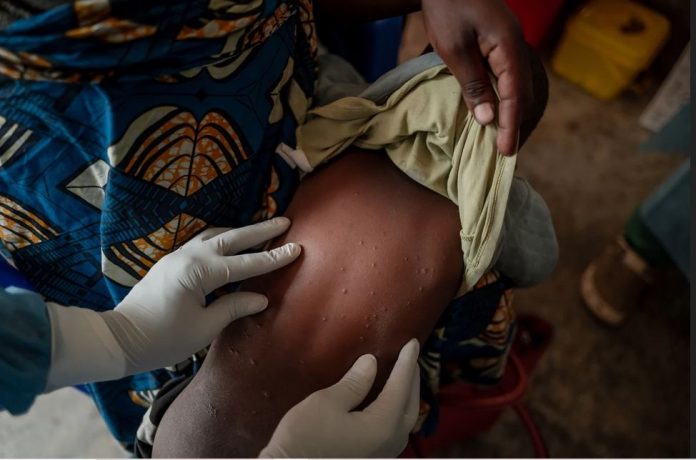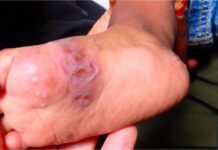
By Abibatou Ceesay & Arret Jatta
On August 13, the Africa Centres for Disease Control and Prevention (Africa CDC) officially declared the Mpox outbreak a Public Health Emergency of Continental Security (PHECS).
A day later, the World Health Organization (WHO) also declared mpox a Global Public Health Emergency, describing the outbreak as a cause for international concern.
The declarations followed new cases reported in at least 12 African countries, including previously unaffected nations like Burundi, Kenya, Rwanda, and Uganda, have reported Mpox outbreaks.
Tip of the iceberg
At the time, these countries have confirmed 2,863 cases and 517 deaths, primarily in the Democratic Republic of the Congo (DRC), according to the Africa CDC. Suspected cases across the continent have surged past 17,000, a significant increase from 7,146 cases in 2022 and 14,957 cases in 2023.
This is just the tip of the iceberg when we consider the many weaknesses in surveillance, laboratory testing and contact tracing, Africa’s main health advisory body said.
In DRC, there have been more than 5,049 confirmed cases since the start of the year.
What is MPox?
Mpox, previously called “MonkeyPox”, is an infectious viral disease caused by the Monkeypox virus.
WHO data published on their website stated that mpox virus was first discovered in Denmark in 1958 in monkeys kept for research.
The first reported human case of monkeypox was a nine-month-old boy in the Democratic Republic of the Congo (DRC) in 1970.
Signs and Symptoms
The signs and symptoms of monkeypox include:
- Rash
- Fever
- Sore throat
- Headache
- Muscle aches
- Back pain
- Fatigue
- Swollen lymph nodes
Transmission
Mpox can spread from person to person or occasionally from animals to people.
The disease can be transmitted to humans through physical contact with someone who is infected, with infected animals, or through contaminated materials.
According to a UK government guidance, Mpox does not spread easily between people “unless there is very close contact”.
The virus is transmitted through skin-to-skin contact, breathing in virus through the respiratory tract, or contact with mucous membranes (eyes, nose, mouth, genitals).
From animals to humans
Someone who comes into physical contact with an animal which carries the virus, such as some species of monkeys or a terrestrial rodent (such as the tree squirrel) may also develop mpox.
Exposure by such physical contact with an animal or meat can occur through bites or scratches, or during activities such as hunting, skinning, trapping or preparing a meal.
The virus can also be caught through eating contaminated meat which is not cooked thoroughly.
Has Gambia recorded a case?
The Gambia has yet to report a case of mpox. However, two days after the Africa CDC declaration, the Ministry of Health said it is on high alert and that it has intensified measures to respond to any potential outbreak.
Although no case of mpox has been registered in the Gambia, the Ministry of Health has urged the public to be vigilant and report any unusual symptoms to healthcare providers, or call the ministry’s toll-free line on 1023 to prevent the spread of the disease.
What does it look like on the body
An mpox rash typically starts as a flat sore and develops into a blister filled with fluid, which may be itchy or painful.
The rash can appear anywhere on the body and may evolve over 2-4 weeks in stages – macules, papules, vesicles, and pustules.
Some individuals may experience painful swelling of the rectum or have pain and difficulty during urination.
How to prevent contracting Mpox?
One can avoid contracting Mpox by:
- Avoiding close contact with people who have a rash that looks like mpox.
- Avoid handling clothes, sheets, blankets or other materials that have been in contact with an infected animal or person.
- Isolate people who have mpox from healthy people.
- Wash your hands well with soap and water after any contact with an infected person or animal. If soap and water aren’t available, use an alcohol-based hand sanitizer.
- Avoid eating or being in contact with animals that may carry the virus.
Does the Mpox virus go away?
In most cases, the symptoms of mpox go away on their own within a few weeks with supportive care, such as medication for pain or fever.
However, in some people, the illness can be severe or lead to complications and even death.
Newborn babies, children, people who are pregnant and people with underlying immune deficiencies such as from advanced HIV disease may be at higher risk of more serious mpox disease and death.













